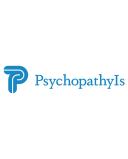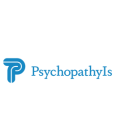Therapy
Aggressive Children Need Parent-Focused Interventions
Why aren’t more families referred to this type of therapy?
Posted August 30, 2023 Reviewed by Gary Drevitch
Key points
- Aggression and defiance are the most common reasons children are referred for mental health treatment
- Therapies that teach parents to manage behavior are the most effective treatments for aggression and defiance
- Few therapists are trained to treat aggression and defiance, so many families do not get effective treatment
by Emily L. Robertson, Ph.D.
At least 1 in 20 families struggles with an aggressive child. Such children and their families need and should be offered evidence-based treatments. When these families get ineffective therapies—or no therapy at all—the consequences can be disastrous.
In one infamous case a decade ago, an 11-year-old boy with a history of serious aggression and other behavior problems was left home alone with his toddler brother. It is believed the 11-year-old shoved his toddler brother against a bookshelf. What is certain is that the toddler died. Could this tragedy have been prevented? Perhaps. The 11-year-old showed a long history of serious conduct problems at home and at school. The Florida Department of Children and Families (DCF) had been involved with his case. There were many opportunities for this family to receive research-backed interventions to reduce his aggression and defiance. Unfortunately, this did not happen.
I am a licensed clinical psychologist specializing in the treatment of children with serious behavior problems. The last 12 years of my clinical and research career have been shaped by this case: How should schools, medical professionals, and social workers respond to youths like this boy? How can we improve outcomes for these children, their families, and society?
Decades of research have been conducted on children and adolescents with disruptive behavior disorders like conduct disorder and oppositional defiant disorder. Children with these disorders exhibit impulsive, destructive, angry, defiant, and sometimes aggressive behaviors. These behavioral challenges can become so severe that they cause dysfunctional family dynamics with distraught, burned-out caregivers unsure of what to do.
The highest-risk subset of children with disruptive behavior disorders show a profound lack of empathy and remorse for their behavior, termed callous-unemotional (CU) traits or “Limited Prosocial Emotions.” Children with CU traits blame others for their mistakes, do not show appropriate emotions to distressing situations, show more serious violence and aggression, and do not put effort into important tasks like school. Most children with disruptive behavior disorders do not have CU traits, but those who do are more aggressive and tend to have worse long-term outcomes, particularly if they don’t get treatment. Children with these traits sometimes commit serious acts of violence, like hurting animals, slamming siblings to the floor if they don’t get their way, or strangling classmates in school. The parents I’ve worked with whose children have CU traits commonly describe their children as cold, unloving, and, at times, unfazed or even amused by punishment.
Throughout my career, I’ve had a particular interest in these children and how therapeutic interventions can improve their symptoms and the functioning of their families. Hundreds of randomized controlled trials now show that a specific type of therapy tends to work best: parent management training, sometimes called Behavioral Parent Training.
There are many different types of parent management training programs, including Parenting Toolkit, Strongest Families, and Parent-Child Interaction Therapy (PCIT). All parent management training programs involve a mental health provider teaching parents specific strategies to use with their child. It is important to know that just because the treatment focuses on teaching parents new strategies does not mean that the parent caused their child’s behavior problems. Children are born with different temperaments, some of which increase their likelihood of developing behavior problems. Some parents use strategies that children with these temperaments don’t respond well to, and which may even inadvertently make their aggression, defiance, or destructive behavior worse.
In parent management training therapies, a therapist teaches the parent how to be a therapist at home. This is by far the most effective approach because of how much time the parent and child spend together. With practice and consistency, parents can teach their child how to regulate big emotions, calm down more quickly, accept hearing “no” or having limits placed on their behavior, share, and play appropriately with others. This therapy does require more effort on the parent’s part. They must learn the strategies in weekly therapy sessions and then implement and practice them between sessions with their child. Sometimes parents wish their child could just be treated one-on-one by a therapist. Unfortunately, that type of therapy may not reduce behavior problems like aggression, tantrums, and oppositional behavior, especially in younger children. Decades of research make it clear that parent-focused therapies that teach strategies are what work.
Unfortunately, these therapies are not what many families get. One reason is that too many parents now get mental-health advice from online parenting influencers with who lack training. But even many health-care providers do not refer clients who could benefit to parent management training. Sadly, some providers are not even aware that this type of treatment helps children with disruptive behavior disorders. As a result, they sometimes suggest treatments that are useless or downright harmful. While healthcare professionals bear some responsibility for keeping up with the research on evidence-based therapies, this issue also reflects flaws in the training of mental health and medical providers. In my experience, training programs, including many clinical child psychology programs, overwhelmingly focus on treating disorders like anxiety and depression. There is little emphasis on treating aggression, even though behavioral challenges like aggression and defiance are the most-common reasons children are referred to mental health services in North America. Sadly, this lack of nuanced training and knowledge results in families being led down long, fruitless time-consuming roads of ineffective treatments, diets, “they’ll grow out of it” reassurances, and other unhelpful approaches for improving their child’s behavior. In the end, these parents are left with dwindling financial resources, energy, and hope.
To make matters worse, some professionals take advantage of parents’ desperation. One licensed mental health counselor running an international parent “coaching” business told a family I met that her therapy program would cost them $12,000 and that it was the only treatment that could help their child’s extreme tantrums. This is criminal. Even if a healthcare provider does not accept insurance, therapy costs $100-$400 a session, depending on where you live. (If your provider takes your insurance, you may only have a $25 co-pay per session). Assuming it lasts 2-5 months, depending on the severity of the child's behavior, such therapy costs much less than $12,000. Unfortunately, because many families are desperate for help, and have little information or resources, they may resort to paying such exorbitant fees charged by unscrupulous “experts.”
A final reason many parents of children with behavioral challenges struggle is that there are not enough clinicians trained to help them. Frustrated by this, I left my position as a university professor this year and opened a specialty center, called the Center for Child Behavior in Sarasota, Florida. My goal was to provide high-quality, research-supported evaluation and treatment to caregivers of children with behavior problems ranging from mild to severe. Because we work mainly with parents, we can provide treatment via telehealth, which enables us to work with families anywhere in Florida. (We also conduct comprehensive evaluations and in-person therapy in Sarasota.)
Therapies like those we provide can work wonders for families. If a child is hitting, kicking, biting, or having tantrums when adults try to place limits on their behavior, parents should not hesitate to request parent management training from a qualified clinician. Early, evidence-based intervention can save families enormous heartache and stress. And when parents acquire knowledge about how to teach their child to regulate big emotions, accept limits on their behavior, and develop appropriate social behaviors, both they and their child are more likely to feel empowered and flourish.
Emily Robertson, Ph.D., is a Licensed Clinical Psychologist and the Founding Director of the Center for Child Behavior.
References
Helander, M., Asperholm, M., Wetterborg, D., Öst, L. G., Hellner, C., Herlitz, A., & Enebrink, P. (2022). The efficacy of parent management training with or without involving the child in the treatment among children with clinical levels of disruptive behavior: a meta-analysis. Child Psychiatry & Human Development, 1-18.
Kazdin, A. E. (2008). Parent management training: Treatment for oppositional, aggressive, and antisocial behavior in children and adolescents. Oxford University Press.
Perlstein, S., Fair, M., Hong, E., & Waller, R. (2023). Treatment of childhood disruptive behavior disorders and callous‐unemotional traits: A systematic review and two multilevel meta‐analyses. Journal of Child Psychology and Psychiatry.




